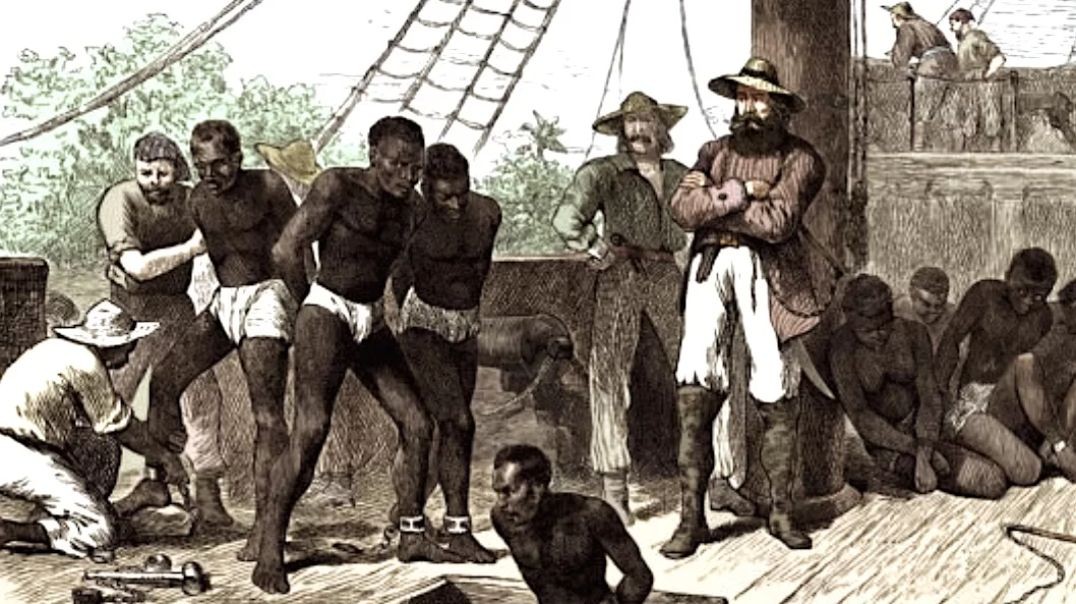Emperor Menas of Ethiopia: The Emperor Who Bridged Tradition and Turmoil
The history of Ethiopia is a vast, vibrant tapestry woven from threads of heroism, faith, resilience, and cultural continuity. Among the many illustrious names that emerge from the pages of Ethiopian history is that of Emperor Menas, sometimes spelled Minas, a ruler whose reign marked a significant yet often overlooked chapter in the legacy of the Solomonic dynasty. Ascending to the throne in a period fraught with political intrigue, external threats, and internal tensions, Emperor Menas exemplified a leader who sought to maintain unity and stability amidst significant challenges. This article aims to provide a comprehensive exploration of Emperor Menas' life, achievements, and struggles, all while highlighting the broader historical context in which he ruled.
Early Life and Ascension to Power
Emperor Menas was born in the early 16th century, into an era when Ethiopia was facing external pressures from its neighboring powers and undergoing internal transformations. Menas was the brother of Emperor Gelawdewos, and he played a vital role as a royal figure even before he ascended the throne. As a prince, Menas was deeply involved in the defense of the Ethiopian kingdom against the encroaching forces of Ahmad ibn Ibrahim al-Ghazi, also known as Ahmad Gran, who led a series of devastating campaigns against the Christian Ethiopian Empire during the Ethiopian-Adal War.
Following the death of his brother Emperor Gelawdewos in 1559, Menas ascended the throne amidst significant turmoil. Gelawdewos had been killed in battle against the forces of the Ottoman-backed Sultanate of Adal, and the Ethiopian state was left vulnerable. The succession of Menas was not without controversy; there were rival factions within the court, and some nobles were hesitant to accept his rule. Despite these challenges, Menas took up the mantle of leadership, determined to stabilize the empire and preserve its sovereignty.
Challenges During His Reign
Menas' reign (1559-1563) was characterized by several notable challenges, both internal and external. Internally, the Ethiopian Empire faced significant issues of factionalism and regionalism. Many regional lords, or "Rases," wielded considerable power and often acted with autonomy, which made it difficult for the emperor to impose central authority. This decentralization posed a constant challenge for Menas, who sought to unify the empire under his leadership.
Externally, the Ottoman Empire's influence loomed large over the region. The Ottoman Turks, seeking to expand their influence in the Horn of Africa, provided support to the Sultanate of Adal, which continued to threaten Ethiopia's borders. Menas had to navigate this precarious geopolitical landscape, balancing diplomacy with military action to protect his kingdom. His reign saw a continuation of the conflict with the Adal Sultanate, and while Menas was able to achieve some military successes, the ongoing warfare took a toll on the empire's resources and stability.
Relations with the Portuguese
One of the defining aspects of Menas' reign was his relationship with the Portuguese. During the reign of his brother Gelawdewos, the Portuguese had provided critical support to Ethiopia in its fight against Ahmad Gran. This alliance was based on a shared Christian faith, and the Portuguese saw themselves as defenders of Christendom in Africa. However, the relationship between Ethiopia and Portugal was complex and often fraught with tension.
Menas inherited this delicate alliance and had to navigate its challenges. The Portuguese were eager to see the Ethiopian Church align more closely with Roman Catholicism, a prospect that was met with resistance by the Ethiopian Orthodox clergy and nobility. Menas, like his predecessors, was wary of foreign influence over the spiritual and political affairs of his kingdom. While he appreciated the military assistance that the Portuguese could provide, he was careful to maintain the independence of the Ethiopian Church and resist any attempts at religious conversion.
Military Campaigns and Conflicts
Menas' reign was marked by a series of military campaigns aimed at defending the empire from both external and internal threats. One of his key challenges was to subdue the rebellious regional lords who sought greater autonomy from the central authority. These nobles often acted as "kingmakers" in their own regions, challenging the emperor's ability to govern effectively.
In addition to internal rebellions, Menas had to contend with the continued threat posed by the Adal Sultanate. The sultanate, backed by the Ottomans, remained a formidable adversary. Menas led several campaigns to push back against Adal incursions, and while he achieved some successes, the constant state of warfare weakened the empire's economy and strained its resources.
One of the most significant battles during Menas' reign was the Battle of Lake Tana, where he faced the forces of Nur ibn Mujahid, the successor of Ahmad Gran. Although the Ethiopians were able to defend their territory, the conflict underscored the persistent threat that the Adal Sultanate posed to Ethiopian sovereignty. Menas' leadership during these trying times was marked by his determination to protect his people and maintain the integrity of the empire, even in the face of overwhelming odds.
Religious Policies and Relations with the Church
Religion played a central role in the life and governance of Emperor Menas. As a devout member of the Ethiopian Orthodox Tewahedo Church, Menas saw himself as the defender of the faith and the protector of the church. His relationship with the church was complex; while he sought to uphold the traditions of Ethiopian Christianity, he also faced pressure from the Portuguese to adopt Roman Catholic practices.
Menas was cautious in his dealings with the Portuguese missionaries who had accompanied their military expeditions. He understood the importance of maintaining the support of the Ethiopian Orthodox clergy, who were influential figures within the empire. Any attempt to impose Catholicism would have likely led to significant unrest among both the clergy and the populace. As a result, Menas adopted a policy of religious tolerance towards the Portuguese, allowing them to practice their faith but resisting any attempts to convert the Ethiopian people.
Legacy and Death
Emperor Menas' reign came to an end in 1563, after just four years on the throne. His death marked the beginning of a new chapter in Ethiopian history, as his son, Emperor Sarsa Dengel, ascended to the throne. Despite the brevity of his reign, Menas left a lasting impact on the Ethiopian Empire. He is remembered as a ruler who faced immense challenges yet remained steadfast in his commitment to defending his kingdom and preserving its cultural and religious heritage.
Menas' efforts to maintain the unity of the Ethiopian state in the face of external threats and internal divisions laid the groundwork for his successors. His son, Sarsa Dengel, would go on to build upon his father's legacy, achieving significant military victories and further consolidating the power of the Solomonic dynasty. Menas' reign, though often overshadowed by those of his more famous predecessors and successors, was a crucial period of transition that helped to ensure the survival of the Ethiopian state during a time of great uncertainty.
Conclusion
The story of Emperor Menas of Ethiopia is one of resilience, faith, and leadership in the face of adversity. His reign was marked by constant challenges, from internal rebellions to external threats, yet he remained committed to the ideals of unity and sovereignty. Menas' legacy is a testament to the strength of the Ethiopian people and their ability to endure and overcome even the most daunting obstacles.
While his reign may not have been as long or as celebrated as those of other Ethiopian emperors, Menas played a vital role in maintaining the continuity of the Solomonic dynasty and preserving the cultural and religious identity of Ethiopia. His story is a reminder of the complexities of leadership and the sacrifices that are often required to protect a nation's heritage and ensure its future.
The life of Emperor Menas is a fascinating chapter in the rich history of Ethiopia, offering valuable insights into the challenges faced by the Ethiopian state during a period of significant upheaval. By examining his reign, we gain a deeper understanding of the resilience and determination that have characterized the Ethiopian people throughout their history, and we are reminded of the importance of strong leadership in times of crisis.








